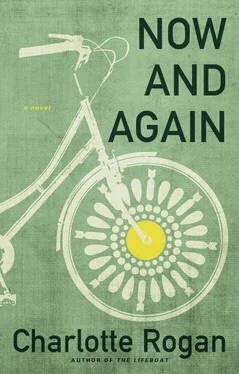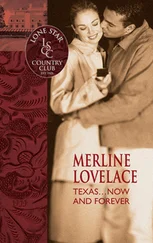“That was a defining moment for me,” said the colonel. “Things could have gone one way and they could have gone another. The thing is, my commanding officer had my back. The thing is, I learned from my mistakes.”
“But what if the war itself was the mistake?” asked Penn. “That’s what I’m trying to figure out.”
“I have to admit I think about that too, but the bottom line is, deciding that is not our job. Our job is to get the supplies from point A to point B. Our job is to find and defuse the IEDs.” He reached out to tap the papers Penn was holding. “Our job is to run patrols and build infrastructure like water treatment plants and even schools. I’m here for another couple of months, but then I’m headed back. I can take you with me if you want.”
“Let me think about it, sir,” said Penn.
“It’s another chance,” said the colonel. “It’s another chance to get it right.”
10.5 Joe Kelly
Meaning had always eluded Kelly until he started fighting for his country, and then it suddenly seemed embedded in the smallest of events. He would be eating breakfast or loading a truck or cleaning his weapon or buckling into his body armor when a blast of meaning would nearly knock him over: One for all and all for one! You’re with us or you’re with the terrorists! Live free or die! Now he thought, People have a right to know. It felt good to see the big picture. It was gratifying to know the big picture had a place in it for him. Maybe he was a businessman after all. Maybe he’d buy himself a suit. Ha! Every now and then he got up to stretch and tried to see what Danny was doing because when Danny went down the rabbit hole with his epic poem, it was hard to get him out. But it seemed like that morning everyone was busy with work-related tasks. Everyone except the captain, who had driven down to DC to visit with the colonel.
Kelly worked through the emails, feeling a zap of pleasure whenever he handled one particularly efficiently. If he came upon something unusual, he would say, “Hey, Le Roy, I need your wizard skills,” and now and then Le Roy would lean over Kelly’s screen and say, “Ya got anything new for me to post?”
Kelly almost always did. In the past two weeks alone he had gotten photographs of flag-draped coffins and a story about how pre-election fear-mongering had incited someone in Ohio to spray a chemical irritant into a room full of Muslim children and statistics showing that one third of female troops would be raped by fellow service members and that some of the victims would subsequently die under suspicious circumstances of non-combat-related injuries. He’d gotten reports that post-9/11 security measures had led to spying on American citizens and that a facility was being built in the Utah desert large enough to store data at the rate of an entire Library of Congress every minute and that twelve billion dollars in shrink-wrapped hundred-dollar bills had been sent to Iraq only to — go figure — be squandered or lost. And just that morning he’d received a story about a unit that was ordered to kill all military-age Iraqi males, after which four low-ranking soldiers were arrested and caged for twenty-three hours a day in seven-by-seven cells while sworn testimony was shredded to ensure they took the fall for their commanding officers.
At first, they were stories and reports sent to him by soldiers, but then it wasn’t just soldiers posting on the site. There was Mark O’Hara of Tampa, whose war involved being sentenced to twenty-five years in prison for possessing a bottle of Vicodin for which he had a valid prescription, but because the prosecutor charged him with trafficking rather than possession, no prescription defense was allowed. And there was Genarlow Wilson, who was seventeen when he had consensual oral sex with his fifteen-year-old girlfriend, an act that earned him ten years in prison. Vaginal penetration would have been okay. Girls who were arrested for dropping chewing gum on the sidewalk — black girls, that is. The white girls could put their gum anywhere they wanted, but they couldn’t jaywalk near the University of Texas without carrying an ID card. Then they risked being slapped in handcuffs and hauled off to jail.
There were Jennifer Boatright and Ron Henderson, who, under civil property forfeiture laws, were stripped of the cash with which they had planned to buy a used car when a police officer pulled them over, found the money, and threatened charges of child endangerment and money laundering if they tried to get it back. The usual constitutional protections didn’t apply because it wasn’t Boatright and Henderson who were the named defendants in the case, it was the $6,037, which went straight into the coffers of the police department that had seized it, where it joined the money that was supposed to pay for James Morrow’s dental work.
There was Irma Alred, who got thirty years, and Theresa Brown, who got life, both for drug charges where no drugs had been found and the only evidence was the word of people who were given immunity in return for their testimony. There were the seventeen Uighurs who escaped Chinese persecution only to wind up in Guantanamo Bay and remain there because no nation wanted to upset the Chinese government by granting them asylum. There was Otto Zehm, developmentally disabled and wrongly suspected of robbing an ATM, who was batoned seven times from behind, Tasered, hog-tied, and fitted with a non-rebreather mask that was not attached to an oxygen tank. There was twelve-year-old DeAunta Farrow, who was playing with a toy gun when he died.
“I thought we weren’t going to post that stuff,” said the captain when he came back from DC. “I thought we were going to focus on information pertaining to the war.”
“There’s more than one war going on,” said Kelly.
“But they’re not our war,” said the captain.
“That’s ’cuz you’re rich and white,” said Kelly.
“Well, we can’t post everything we get. That stuff just takes away from our mission. Tell Le Roy to take it down.”
Ever since the Times article, the captain had been going on about tough choices, but it seemed to Kelly that “choice” was the captain’s way of saying, This is how it’s gonna be.
“And what’s our mission?” asked Kelly. And then he said, “Captain, sir.”
“Helping other soldiers, you know that.”
“What if there’s other people I want to help? People who didn’t get to choose the war they’re fighting. Believe it or not, I even want to help myself.” Kelly was eager to explore the site’s commercial potential, but he had been waiting for the right time to press the issue. “I’m thinking the human-interest stories might attract advertising, so if we concentrate on those…”
“Commercial potential is something I think about too,” said the captain. “The practical answer is that it’s pretty darn hard to make money on news. And the philosophical one is that I don’t think we should be making money on the war.”
“So everyone can make money on the war but us?” asked Kelly.
It was cold in the warehouse. Danny talked about installing storm windows, but they were expensive, so Kelly had been sitting with a blanket around his shoulders. Now he took it off and paced to the refrigerator, but it was empty. “Shee-it. We couldn’t afford new windows, and now we can’t afford beer?”
“The thing about making money off the war is, then there’s no incentive for peace,” said the captain.
“Is it wrong for farmers to make money off of hungry people or doctors off of sick people?” asked Kelly. “Or should everybody just focus on selling people shit they don’t need?”
“Martin agrees with me that the documents are the important thing,” replied the captain.
Читать дальше












